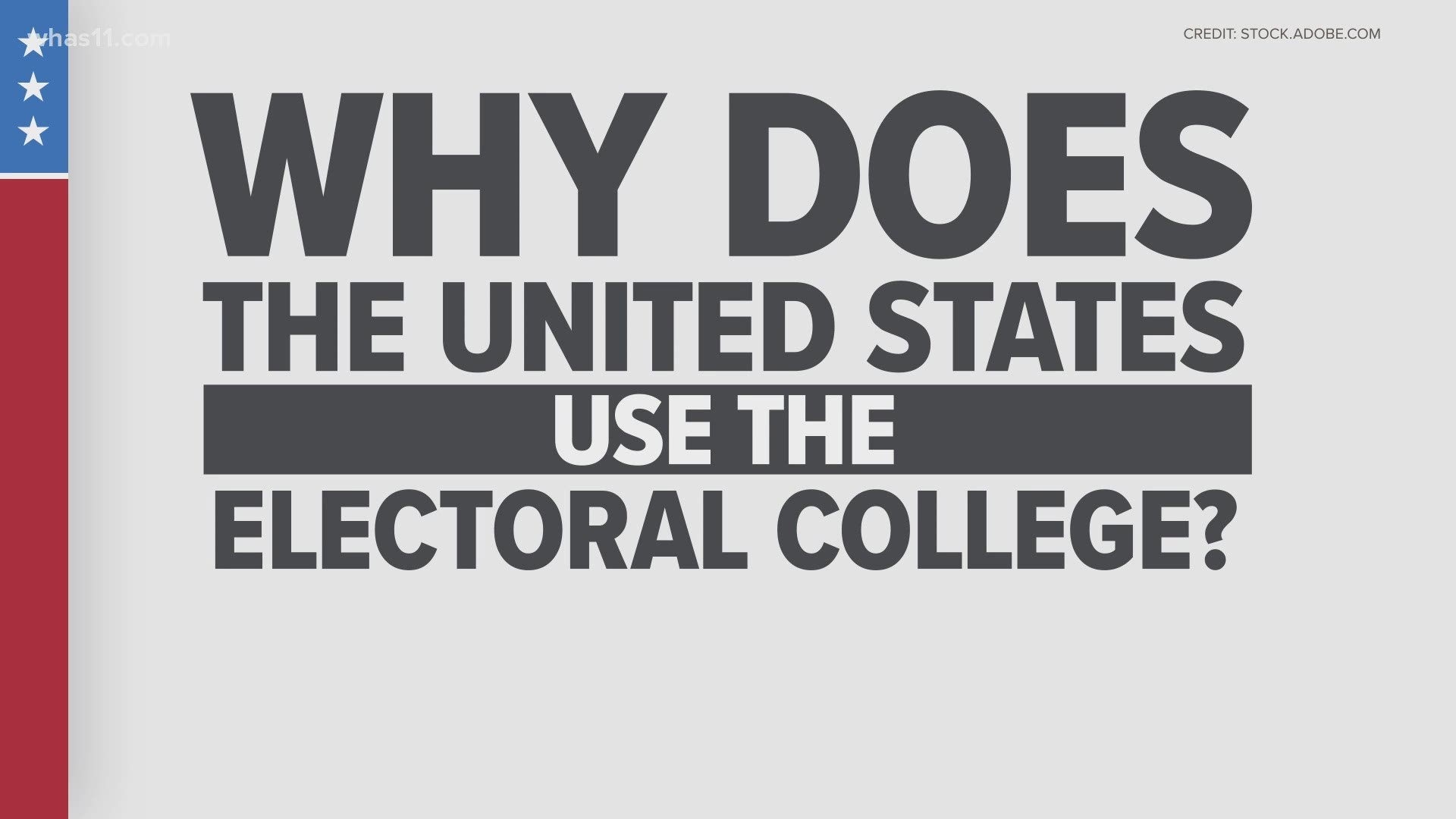LOUISVILLE, Ky. — We're a little over three weeks away from Election Day in the US.
As of Oct. 17, 22 million Americans have already cast their ballot and that number is already 16% of the vote that was seen in the 2016 general election.
As more Americans line up at the polls, here is a breakdown on a few terms that pertain to election day, voting and topics surrounding the election.
Bipartisanship
Bipartisanship is a political situation that occurs when two opposing parties work together to achieve common goals.The two major political parties in the US are the Republican and Democratic parties.
Conversely, partisanship is when party members adhere to their ideological values and platforms.
As of now, the GOP controls the Senate majority and the Democrats hold a House of Representatives majority.
Court Packing
The term court packing has been a talking point during the Presidential and Vice Presidential debates amid the confirmation hearing for Supreme Court Justice nominee Amy Coney Barrett.
Court packing essentially means changing the number of Supreme Court justices, often in an effort to change the balance of power.
The debate now is about the number of justices and if lowering that number is court packing.
President Donald Trump nominated Barrett following the death of Justice Ruth Bader Ginsburg and the nomination led some Democrats to contest the nomination citing a prevention of hearings on former president Barrack Obama's final pick for a justice in 2016.
Congress does have the power to change the number of justices.
Starting in 1789, the number of justices shifted several times in an effort to give the ruling party more power.
However, Congress set the number at nine following the Civil War and it has stayed that way ever since.
Electoral College
The Electoral College is compromised of 538 people, who cast the official votes for president.
That 538 number is the same as the number of elected officials in Congress plus three more for Washington D.C.
So, when choosing a candidate for president, voters cast a ballot for electors to support that person in the Electoral College vote in December.
Each state gets a set number of electors based on population. The biggest state, California, has 55 electoral votes. The smallest states, like Wyoming, get three.
Indiana and Kentucky have 11 and eight Electoral College votes, respectively.
Fracking
According to the EIA, "fracking" is slang for hydraulic fracturing. This is a drilling process that injects liquid and another substance-like sand-underground to open up cracks in rock formations to release oil or natural gas.
The EIA reports fracking accounts for 63% of the oil produced in the United States.
According to the BBC, fracking has significantly boosted domestic oil production and driven down gas prices in the US.
President Trump has asserted that his challenger former Vice President Joe Biden would ban fracking in the US if elected president.
Our Verify team has confirmed that Biden has not changed his stance on fracking and supports it.
Margin of Error
The margin of error is used in polls for election races.
According to Pew Research, the margin of sampling error describes how close pollsters can reasonably expect a survey result to fall relative to the true population value.
The margin of error that pollsters customarily report describes the amount of variability we can expect around an individual candidate’s level of support.
PAC/SuperPAC
According to Ballotpedia, PACs or Political Action Committees are political committees established and administered by corporations, labor unions, membership organizations, or trade associations.
A PAC is a group that funds money on elections but it is not run by a party of individual candidate. However, PACs can donate money to parties or candidates they support.
According to Ballotpedia, Super PACs, also known as Independent Expenditures Only Committees, can accept unlimited contributions and spend an unlimited amount supporting or opposing federal election candidates.
These IEOCs cannot directly donate to federal candidates or parties.
PACs can be broken down into two factions: multi-candidate and non multi-candidate.
Popular Vote
The national popular vote refers to the total votes cast for each candidate across the entire US.
Presidential candidates are elected to office by the Electoral College vote instead of the popular vote.
In the last general election in 2016, President Trump lost the popular vote by 2.1% to Democratic candidate Hillary Clinton.
Road to 270
The "Road to 270" refers to the number of Electoral College votes needed to have a majority on Election Day.
Once a candidate reaches 270 votes, they have secured the majority of electoral votes to win the election.
Swing State
A "swing state" refers to a state where polls indicate either candidate could win which in turn would swing the election in their favor.
Also known as "battleground states," presidential candidates typically spend more time campaigning or spend more money in these states.
A number of states have been indicated as "swing states" in this year's election including Florida, North Carolina, Ohio and Michigan, among others.
Voter Suppression
Voter suppression is described as any effort, legal or illegal, that would prevent an eligible voter from registering to vote or voting and has historically targeted minority communities, people of color, low-income or the homeless, the elderly, and college students.
Voter Suppression can come in many forms, such as, strict photo ID requirements, reduced early voting and voting hours, fewer voting locations, and issues that include the need to have a witness or a notary for absentee ballots.
►Make it easy to keep up-to-date with more stories like this. Download the WHAS11 News app now. For Apple or Android users.
Have a news tip? Email assign@whas11.com, visit our Facebook page or Twitter feed.

